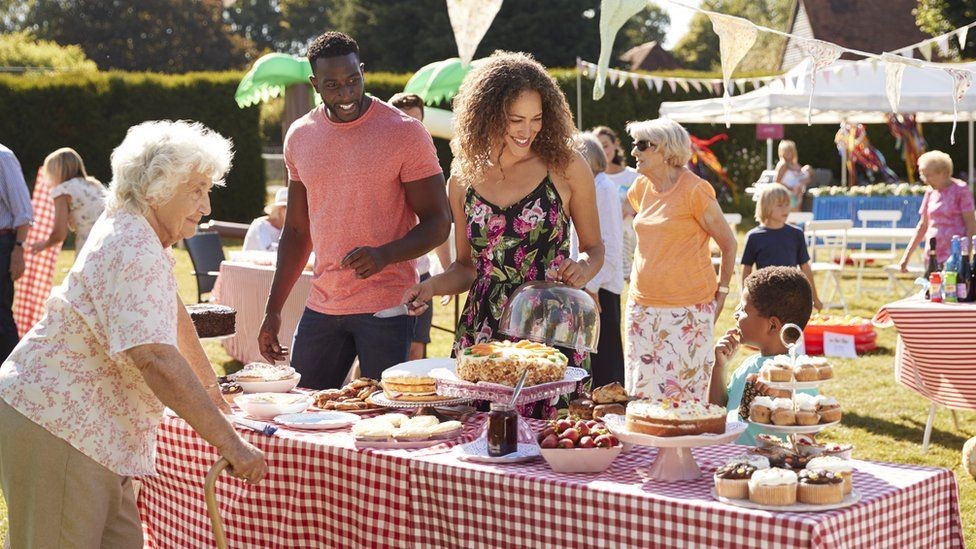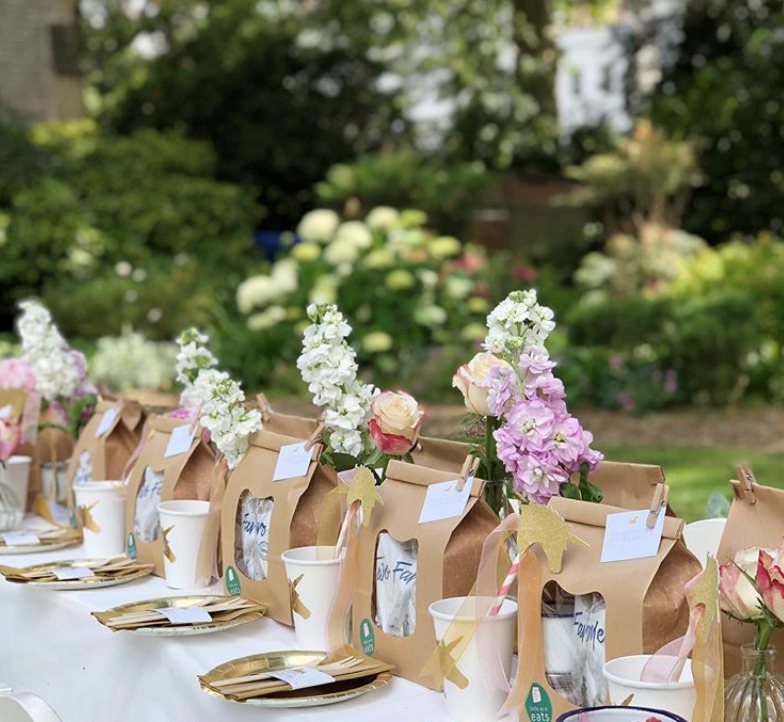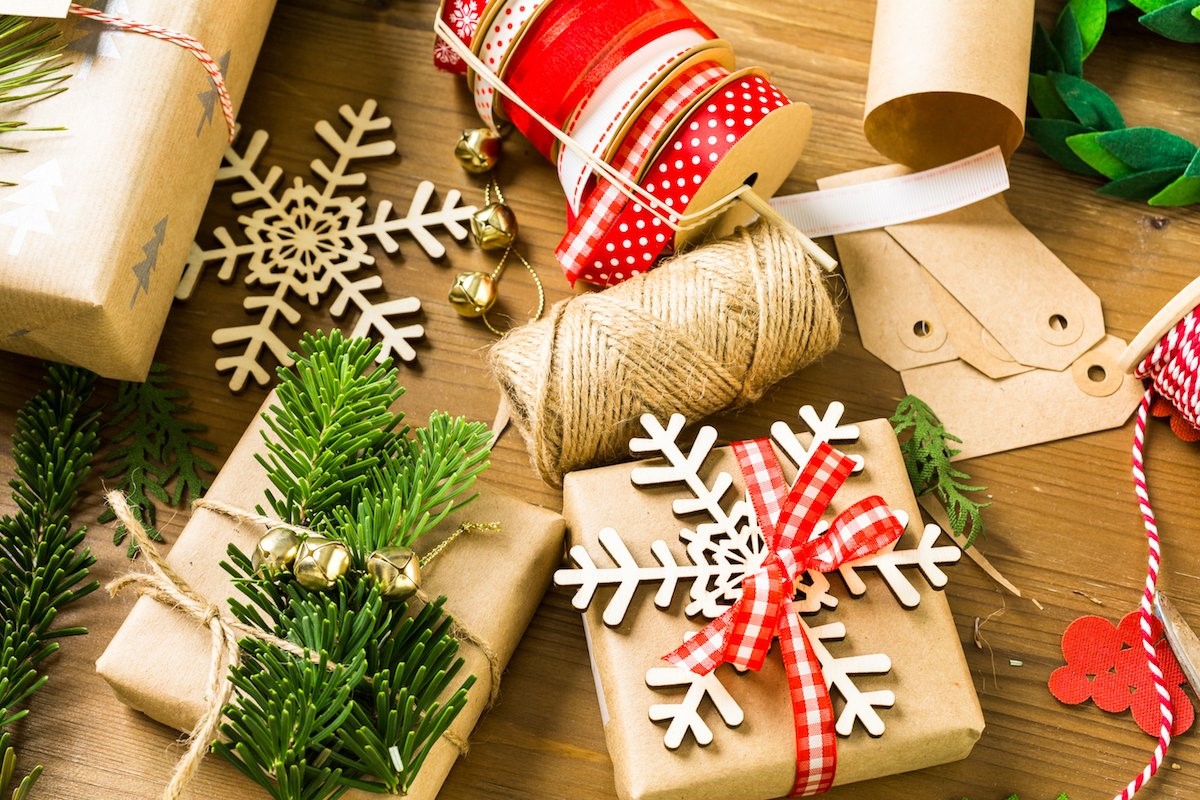Sustainable Celebrations

Big or small, celebration events have an impact on our carbon emissions and waste. But a lifestyle that supports the planet doesn’t mean that there can’t be plenty of fun! Check out our guide below for some quick tips on how to make your celebrations more sustainable, as well as advice for specific events.


Presents:
A great way to reduce waste and be more environmentally friendly is by considering the presents we give and how we give them:
- Buy less & 'quality not quantity' – The simplest way to reduce our emissions is to buy less. Buying fewer gifts with a greater quality is kinder to the planet and possibly to your wallet as well.
- Experiences – A great way to reduce emissions is to gift someone an experience, rather than a physical present, which can sometimes be more personal too!
- Buy second-hand – Shopping second-hand can be a great way to save money and the planet by reducing the amount of new materials needed. Charity shops are a great source of second-hand goods, or if you prefer the convenience of online shopping, options include eBay, Vinted, Depop, Dazzle and Bloom, Gumtree, Freecycle and many more.
- Materials – The materials our gifts are made of are important to consider. Be mindful of sustainability by: avoiding single-use plastics; looking for organic materials; ensuring wood/paper is recycled or Forest Stewardship Council (FSC) certified, and recyclable.
- Packaging and wrapping – Reduce waste by choosing gifts with no or limited additional packaging that is discarded immediately after being opened. Avoid plastic ribbon, tape, and wrapping with glitter (as these are not recyclable and rarely reusable) and instead look for recycled or FSC-certified paper. If in good condition, save and reuse wrapping paper and gift bags. Why not challenge yourself through attempting a tape-free wrapping technique or trying furoshiki, a Japanese method of wrapping gifts in cloth.

Food and Drink:
Food and drink are a central part of many festivities. There are several ways to make what you serve more environmentally friendly, whilst also creating less waste!
- Waste – Planning ahead can help to cut waste: be realistic about the amount of food that is actually needed, and make sure leftovers are used up!
- Choose local and British produce – Buying locally produced items means that less transport emissions are released into the atmosphere. It's also a great way to support the local economy!
- More plant based, less meat – Different food types cause different levels of emissions. The livestock/meat industry accounts for 14.5% of all global greenhouse gas emissions, due to the huge amounts of space, water, and feed needed. Consider opting for a plant-based or vegetarian foods where possible. For example, you could swap sausage rolls for plant-based rolls. And when you are buying meat, try to buy from local producers.
- Packaging – Ditch single use plastics like cling film and instead try reusable foil or wax cloth covers. Alternatively, you could use existing containers that you have in the house.
- Seasonal foods – The most sustainable shopping basket is full of locally produced, seasonal products. Eating seasonally throughout the year is a great way to support UK farmers and the planet. This reduces emissions by reducing demand for foods that are otherwise flown across the world from other climates to UK supermarkets. Check out a list of UK seasonal foods here.
- Drinks – Keep an eye out for drinks companies that state they are carbon neutral, which is becoming increasingly common. Gins, whiskeys and alcohol free spirits are particularly good for this.
- Product logos – Check for certain certifications that highlight sustainable production practices on food packaging. For example, RSPO-certified palm oil and MSC-certified seafood.
Decorations:
Hosting a sustainable celebration event doesn’t mean that you can’t have any decorations! You just need to take a moment to consider some sustainable options.
- Avoid single-use – Try to avoid any single-use decorations that are thrown away straight after the event. Choosing decorations that can be reused multiple times is friendlier to your finances and the planet.
- Material choice – Choose items that are made from fully recyclable materials or can be fully recycled e.g. cardboard, wood, tissue paper and metal etc.
- DIY – Save yourself money by making your own decorations from used materials or upcycling old decorations.
- Lighting – Set up decorative lights? Choosing LED lights means that you use less energy and they also have a much greater lifespan. Remembering to switch your lights off at night too will save extra energy and money.
Additional Ideas:
- Clothing – Buying new outfits can be expensive for your wallet and the environment. Instead, you could rent outfits, buy second hand, or make your own!
- Fireworks - Firework celebrations often lead to elevated levels of air pollution as they contain contaminants such as metal compounds or other chemicals. If you want to watch fireworks on nights like Bonfire Night and New Year's Eve, attending organised displays rather than buying your own will mean less are used overall.
- Candles – Candles are great for many events, but the majority are petroleum-based and potentially harmful to you and the environment. Check for sustainable candles made from non-synthetic ingredients, which are usually indistinguishable from normal candles.
Birthday Parties
- Your choice of party location will affect your guest’s travel emissions. Try to think about locations that are accessible by public transport, walking or cycling.
- Send digital party invites, rather than physical ones. Creating an event page on Facebook is one way of doing this.
- Think about waste-free activities and games for your party. Whether you’re indoors or outdoors, there are plenty of fun activities and games that you don’t need to buy items for!
- Try to avoid party bags that are filled with small plastic toys.
- Make sure to save all leftover food and drinks to have another day!
Christmas
- Here’s a guide to recycling common Christmas items: https://www.recyclenow.com/news-and-campaigns/christmas-recycling#How-to-recycle-Christmas-decorations
- Many Christmas crackers are not recyclable and come filled with plastic toys that are soon discarded. You can instead purchase reusable crackers or why not try making your own and filling them with your own gifts and awful jokes!
- Buying a plastic tree isn’t necessarily bad for the environment, but you need to ensure you will get at least 10 years use out of it for it to be a sustainable option.
- If you’re picking a real tree, check that it is FSC-certified. You could even consider buying a living potted tree or renting one over Christmas and returning it when finished. These options mean that trees are used multiple years in a row, rather than cutting down a new one every time.
- For the festive period, brussels sprouts, cauliflower, parsnips, swede, turnips, clementines, cranberries, chestnuts, and hazelnuts are all in season. And make sure to save those Christmas dinner leftovers!
- Christmas cards are a great way to show someone you are thinking about them, but many are not easily recyclable due to the material choice or the addition of glitter etc. Try to keep your cards simple and from FSC certified paper. Alternatively, you could try sending a digital card this year!
Ramadan
- Many popular dishes at iftar time include meat. Try to replace these with more plant based options to lower your emissions. Why not join Islamic Relief’s meat free Ramadan challenge: Meat-Free Fortnight Challenge - Eco-Ramadan | Islamic Relief UK (islamic-relief.org.uk)
- Ramadan can often be a time of long hours’ awake and less sleep. Try to be mindful of the extra electricity you are using during the Ramadan period and switch off extra devices.
- Ramadan is an important spiritual month for Muslims. But for many it is also a time of increased spending and consumption, which can increase emissions. The Holy Qur’an teaches: O Children of Adam, take your adornment at every place of prayer, eat and drink, but be not excessive – Indeed Allah likes not those who commit excess. (7:31)
Diwali
- Diwali is a time for beautiful colourful outfits. There are innovative ways to upcycle an old lehenga or kurti into a new festive look. If you are buying an outfit, try to go second hand or choose from sustainable brands.
- Due to heavy marketing, fireworks and firecrackers have become very popular during Diwali in the last 100 years. However, the festival of lights predates the invention of fireworks by centuries.
- If you are making Rangoli, try to use natural ingredients instead of artificial food colourings.
- As a fun activity, why not try and make your own paper mache idols instead of buying new?
Hanukkah
- When choosing a menorah / hanukkiah it is best to shop for a well-made and durable piece that will last a long time. Long-lasting materials include metal, glass, or ceramic and choosing these will reduce waste in the long term.
- Plant-based recipes are normally the best way forward for a sustainable lifestyle. Latkes, kugel and gelt all can be made vegan using substitute ingredients and you can find plenty of recipes online. If you have made Latkes yourself remember to recycle the cooking oil and never pour it straight down the drain!
- There are now companies who specifically advertise eco-friendly Hannukah candles, which are free from petroleum and animal products.
- Try to stay away from plastic dreidels. You can buy handmade wooden dreidels or why not attempt making your own from clay?
